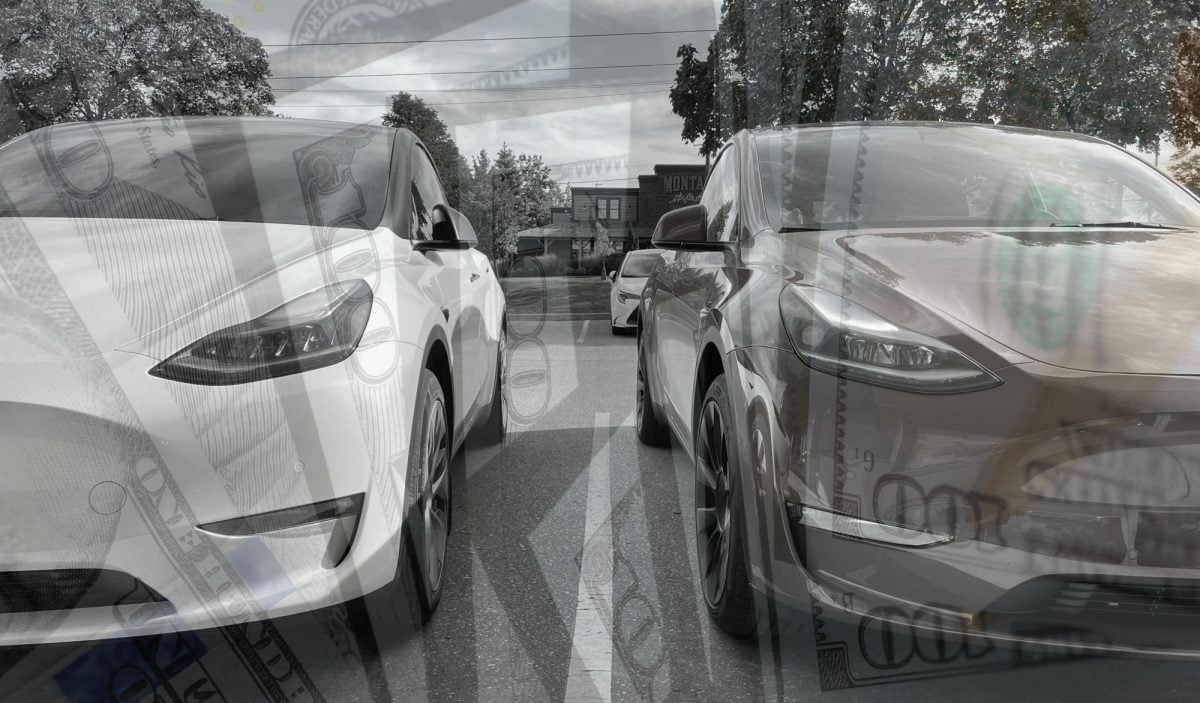2023 is here, so that means the federal tax credits for EVs are available to use for the purchase of a new car. If you have been putting off the purchase of a new EV, now may be the time to take the plunge.
Below is a list of fully electric vehicles currently eligible for the $7,500 credit, as released by the IRS, and accurate as of January 5, 2023.
| Brand and Model | Tax Credit (up to) |
| CADDILAC Lyriq (2023) | $7,500 |
| CHEVROLET Bolt EUV (2022-2023) | $7,500 |
| CHEVROLET Bolt EV (2022-2023) | $7,500 |
| FORD F-150 Lightning (2022-2023) | $7,500 |
| FORD Mustang Mach-E (2022-2023) | $7,500 |
| FORD E-Transit (2022-2023) | $7,500 |
| NISSAN LEAF SV, S Plus, SL Plus (2021-2022) | $7,500 |
| NISSAN LEAF S / SV Plus (2021-2023) | $7,500 |
| RIVIAN R1T (2022-2023) | $7,500 |
| RIVIAN R1S (2022-2023) | $7,500 |
| TESLA Model 3 RWD/Long Range (2022-2023) | $7,500 |
| TESLA Model Y AWD/Long Range/Performance (2022- 2023) | $7,500 |
| VOLKSWAGEN ID.4 Pro/Pro S/AWD Pro/AWD Pro S (2023) | $7,500 |
Information about the EV Tax Credit is still evolving and will change throughout 2023. Confirm with your tax accountant before making a purchase if you are depending on this tax credit to afford the EV.
Later this year, the eligibility of some models may change when the Government further defines criteria on manufacturing location and material sourcing for the battery components. But as of right now eligibility is based on final assembly in North America, and MSRP under $80,000 for SUVs, and $55,000 for other vehicles.
Why is it “up to $7,500”?
This is a federal tax credit, meaning you can claim the credit if you owe tax to the US Federal Government. For example, if you purchase a Rivian R1T truck, but you only owe the Government $5,000 on your tax return, the $5,000 is the tax credit you can claim.
What is the controversy about Tesla Model Y eligibility?
As of right now, one of the definitions of an SUV under the rules is having a GVWR or Gross Vehicle Weight Rating of 6,000 lbs. The Model Y is too lightweight and efficient according to these criteria. Therefore, a limit of $55,000 applies, but Model Y sells for $65,990 and above. A buyer would have to order a Model Y with a third-row seat to meet another definition of an SUV under the rules.
This makes little sense because much less efficient plug-in hybrid SUVs are eligible for the full $7,500 while many trim levels of the wildly popular and fully electric Model Y are excluded.
Luckily, the IRS is taking public comments on the program, where buyers can point out the obvious shortcomings of the program as it stands today.
How about credits and rebates on EV chargers for home? We have the full list here.
Considering buying a Tesla? Use our referral link to get $1,000 off, and help support our content.
